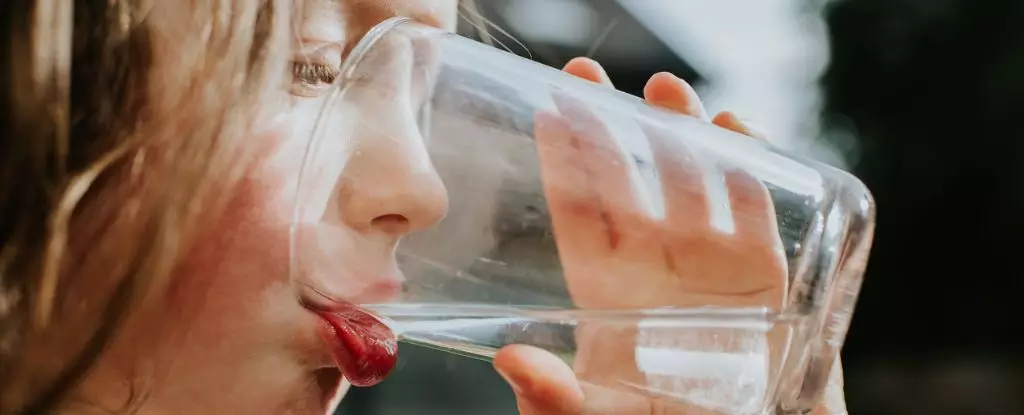The threat of plastic pollution on human health remains a looming mystery, but the recent discovery of microscopic plastic particles in our water sources has sparked concern and anxiety among many. The University of Missouri researchers have introduced a potential sustainable and safe method to eliminate these minuscule pollutants from water using natural liquid ingredients with low toxicity. This innovative approach has shown promising results, with a 98 percent removal rate of nanoscopic polystyrene beads from both fresh and salt water.
The engineered solvent developed by the researchers acts as a floating substance on the water’s surface, analogous to oil. By simply mixing the liquid, it efficiently captures and transports microscopic plastics to the water’s surface. By extracting the top layer of liquid with a pipette, the researchers were able to eliminate nearly all nanoplastic beads from the contaminated water samples, achieving a remarkable 99.8 percent removal rate in saltwater. This breakthrough offers a cost-effective and potentially sustainable solution to tackle the pervasive nanoplastics issue.
Studies have revealed that tap water and bottled water contain a significant amount of microscopic plastic particles, particularly nanoplastics that are less than a micrometer in size. The presence of approximately 240,000 nanoplastic particles in an average liter of bottled water underscores the magnitude of this environmental challenge. These non-biodegradable particles, whether intentionally produced or formed from the breakdown of microplastics, easily infiltrate natural ecosystems through various pathways, including runoff from agricultural practices, drainage networks, and wastewater treatment plants.
Nanoplastics have been disseminated across various water bodies worldwide, including remote locations such as the deep sea, Arctic, and mountain lakes. These tiny pollutants can disrupt aquatic ecosystems, permeate the food chain, and pose risks to wildlife and human health. Additionally, nanoplastics serve as vectors for harmful chemicals like heavy metals and flame retardants, which can adhere to their surfaces and potentially interact with biological membranes, amplifying the detrimental effects of these pollutants.
While removing nanoplastics from the environment poses a significant challenge, recent studies have suggested potential solutions. Boiling tap water, for instance, has been shown to eliminate up to 90 percent of nano- and microplastics, offering a simple method for purifying drinking water. However, this technique may not be applicable to larger bodies of water with widespread contamination. The innovative approach developed by the University of Missouri researchers presents a scalable solution to combat nanoplastic pollution, utilizing a small amount of designer solvent to absorb plastic particles from vast volumes of water.
Chemist Gary Baker highlights the importance of further research to ascertain the maximum capacity of these solvents for plastic absorption. By expanding on this methodology, the researchers aim to enhance the efficiency and effectiveness of nanoplastic removal from water sources. This innovative approach not only addresses the immediate challenge of nanoplastic pollution but also holds promise for broader environmental applications, potentially mitigating other sources of water contaminants.
The battle against plastic pollution in water requires concerted efforts and innovative solutions to safeguard human health and preserve ecosystems. The University of Missouri’s pioneering research in nanoplastic removal represents a significant step towards combating this pervasive environmental threat, underscoring the importance of sustainable and scalable strategies in mitigating plastic pollution in water bodies worldwide.

Leave a Reply